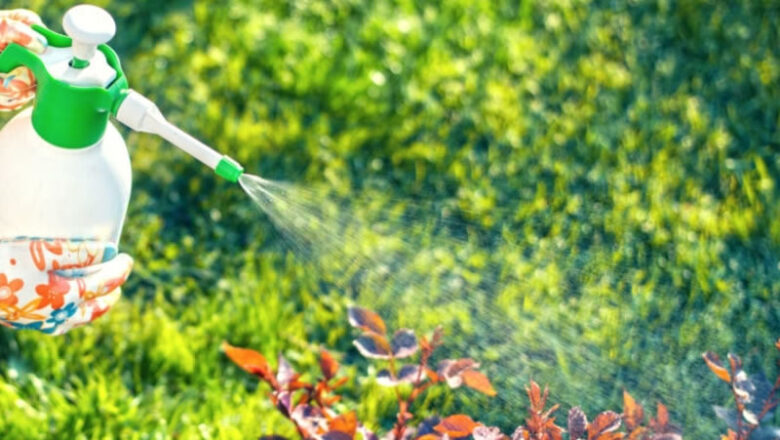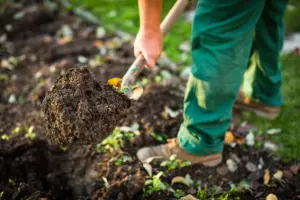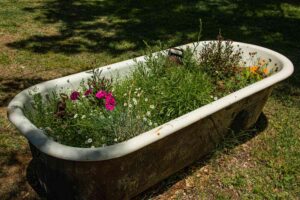There are challenges to ensuring a well-growing garden and one of the most common is dealing with pests. It may be tempting to use chemical pesticides, but in the long run, they can be harmful to the environment. There are many eco-friendly ways to get rid of pests, which will not only keep your yard safe but also make the world a healthier place. This guide discusses various methods and ideas that you can use in your garden to get rid of pests without harming the environment.
1. Use Companion Plants:
When using companion plants, place plants that naturally repel pests next to plants that pests can easily reach. This method not only prevents pests but also contributes to the biodiversity of your garden. For example, growing marigolds next to tomatoes can help repel nematodes, and basil repels mosquitoes and flies.
2. Beneficial Insects:
Adding good insects to your garden is a very effective and environmentally friendly way to get rid of pests. Natural enemies of pests such as ladybugs, predatory beetles, and parasitic wasps can help control pest populations. Providing habitat and water for these insects and making them feel welcome can help maintain a balanced ecosystem in your garden.
3. Neem Oil:
Neem oil is a powerful organic pesticide derived from the neem tree that prevents the proliferation of pests. It keeps various insects at bay by preventing them from feeding and laying eggs. Neem oil is safe for plants, animals, and beneficial insects, making it an excellent choice for gardeners who care about the environment.
4. Diatomaceous Earth:
Diatomaceous earth is a natural powder made from fossilized diatoms and is safe to use. It kills insects by destroying their exoskeleton, causing them to lose moisture and eventually die. Diatomaceous earth can be sprinkled around plants to create a barrier that deters crawling insects such as slugs and snails.
5. Garlic Spray:
A simple and effective way to get rid of many pests is to make your garlic spray. Mix the garlic cloves with water and strain the mixture to create a thick liquid. Add water and spray it on the plants. Pests such as stink bugs and even large animals such as deer will stay out of your garden due to the strong odor.
6. Oil or Essential Ingredients:
Some essential oils have been shown to repel pests. To keep pests away from your plants, mix peppermint, eucalyptus, and citronella oil with water and spray. Using natural methods will not only keep your garden pest-free but also make the air smell wonderful.
7. Walls and Traps:
Using physical barriers and traps will keep pests from reaching your plants. Cover rows of plants with row covers to protect them from flying insects, or build walls to keep out crawling insects. Using beer traps will keep slugs and snails away from your plants, which is an environmentally friendly way to protect your garden.
8. Make Insecticidal Soap at Home:
Mixing liquid soap with water creates a mild but effective insecticidal soap. Soft-bodied pests such as aphids, mites, and whiteflies will suffocate in this solution, but will not harm your plants. Use a mild soap that breaks down naturally with minimal impact on the environment.
9. Crop Rotation:
Changing which crops are grown can end the life cycles of pests and stop the spread of diseases from the soil. Because you move crops each season, pests that feed on certain plants cannot find a permanent home in your garden.
10. Organic Soil Mulching:
Mulching not only keeps the soil moist and reduces weeds, it also helps prevent some pests. Pests that live in the soil are deterred by organic mulch such as straw, bark, or compost. They also improve the health of your soil, making your garden healthier overall.
Conclusion
It keeps your garden free from harmful pests without harming the environment. Using eco-friendly pest removal methods not only protects your plants, but also helps keep the ecosystem healthy and filled with different types of life. Give these ideas a try and see how they work in your garden. You should take pride in creating a place where plants and beneficial animals can thrive.
FAQs
1. Why should I use environmentally friendly methods to prevent pests from entering my garden?
Environmentally friendly methods of eliminating pests encourage sustainable and environmentally friendly gardening. Pesticides made from chemicals can damage ecosystems in the long term, but natural alternatives can help keep your garden in balance.
2. What does companion planting mean? How does it work?
When using companion plants, place plants that naturally repel pests next to plants that pests can easily reach. For example, growing marigolds next to tomatoes can help repel nematodes, and basil repels mosquitoes and flies.
3. Will adding good insects help prevent pests from entering my garden?
Yes, introducing good insects such as ladybugs, predatory beetles, and parasitic wasps can work wonders. These animals that feed on other animals help control pests without harming your plants or the environment.
4. Is Neem Oil Safe for Me, My Plants, and the Planet?
Neem oil comes from the neem tree and is considered a safe, natural pesticide. It prevents pests from multiplying without harming beneficial insects, animals, or plants.
5. How does diatomaceous earth work to repel pests?
Diatomaceous earth is a natural powder that weakens the shells of insects, causing them to lose moisture. Spreading it around your plants will keep pests like slugs and snails from crawling away from your plants.
6. Can I Make My Garlic Spray to Repel Insects?
Yes, homemade garlic spray is a simple and useful idea. Place the garlic cloves and water in a blender, blend them, strain the mixture, add more water, and cover the plants. The strong smell of garlic keeps pests away.



